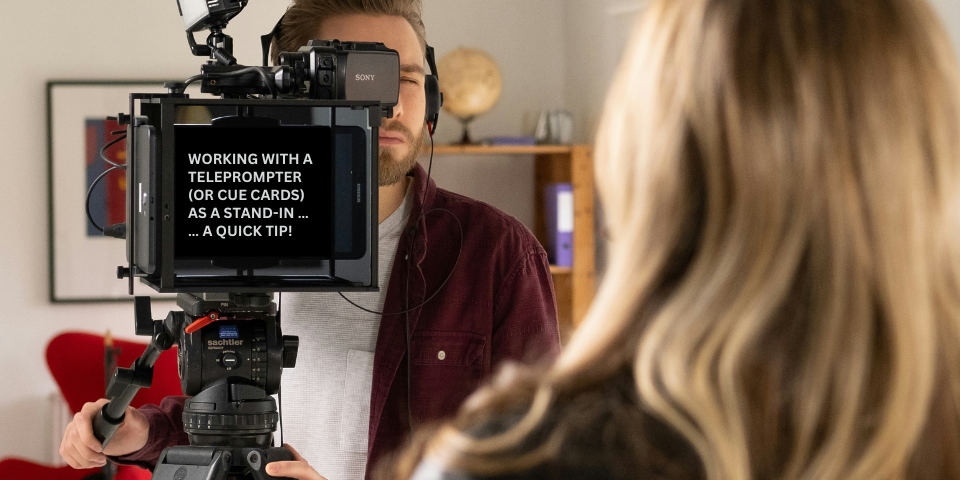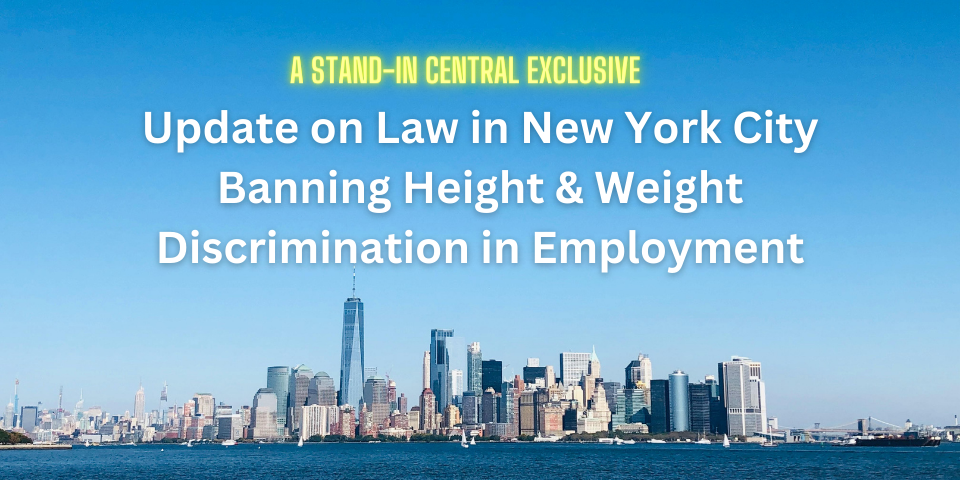If you are working on a SAG-AFTRA set as a union stand-in, from time to time you may find that production is unwilling to pay you for something for which you are supposed to be paid.
If you are unable to persuade production to mark your voucher appropriately so that you are paid for what you are owed, then you may need to file a claim inquiry with SAG-AFTRA so the union can help enforce its contract and get you the money you believe you are owed.
This article covers filing a claim inquiry (sometimes simply called “filing a claim”) so that you can protect your wages when standing in on a union set.
What Is a Claim Inquiry?
SAG-AFTRA’s website gives a general description of a claim inquiry:
A claim inquiry is an allegation that the signatory employer on a SAG-AFTRA, AFTRA or SAG production has violated the collective bargaining agreement in any way.
In simpler terms, when you are working as a union stand-in, there is a contract in place that guarantees you conditions and wages based on particular situations on set. For example, if you are working under a theatrical contract (covering motion pictures), and if you work in rain, contractually you should get what is called “wet pay,” which adds $14 to your base rate (as of this article).
If a production argues that, say, it was only sprinkling, it may decide the rain didn’t warrant giving you wet pay on your voucher. If you insist that you should receive wet pay, and if production refuses to mark your voucher with wet pay, you may decide that you need help getting that compensation. Filing a claim inquiry will get the ball rolling toward enforcing the contract under which you worked and recovering the disputed wages.
How Is a Claim Inquiry Different from a Formal Claim?
SAG-AFTRA’s website also helps differentiate between a claim inquiry and a formal claim:
Once a claim inquiry has been filed with SAG-AFTRA, it is investigated by members of the Contracts Team to determine if it is valid with respect to the apparent facts and relevant contract provisions. If the claim inquiry has been determined to have sufficient validity, it is filed by SAG-AFTRA with the employer as a formal claim. If it has not been determined to be valid, the inquiry is closed and the performer(s) who submitted the inquiry is advised of the Union’s decision and the reasons for the determination.
So, when you “file a claim” with the union, you are technically filing a claim inquiry. Only after it has been determined to be factual and relevant to the contract under which you worked does it become a formal claim.
How to File a Claim Inquiry
If you have a grievance with production, and if you decide you want to file a claim inquiry, there are a number of channels you can try.
First off, you can call the SAG-AFTRA Local that covers your work zone and ask to speak to someone in the department who handles the contract under which your production is working. For example, if you worked on a feature film, you would want the Theatrical Department, or if you worked on a commercial, you would want the Commercials Department. If you’re unsure, speak to the operator for guidance. If you end up speaking to the wrong department, you will likely be directed to the correct department.
Once you get the right department, ask to speak to someone who is handling your project. For films, it would be the working title of the film. For commercials, it may be the ad agency listed on your contract (“voucher”). Once you get the person handling your project, explain that you worked as a stand-in and that you would like to file a claim inquiry for the particular grievance (for example, wet pay).
Ben’s Tip
The production listings may list a SAG-AFTRA business representative for your project, especially if it is a film or television production. The business rep may be a good person to speak to at first.
You will likely be asked to write out your claim inquiry into a form. Different zones have different forms, but you can find an assortment of claim forms on the SAG-AFTRA website. Fill it out with as much information as you can, reporting the facts as you know them. Include any names or details that would help to support your claims. Furthermore, if you have text messages, emails, photographs, etc., that support your claims, also include them. If you have received payment, it may also be helpful to submit your pay stub. Lastly, sign your claim inquiry form.
You might receive email confirmation or a postcard with a claim number after you file your claim inquiry. You might receive a follow-up phone call with questions about your claim. Some claims may be resolved quickly, and you may receive payment within a few weeks. Other claims may take months — even years — to resolve, depending on the claim. Keep in touch with your representative every month or so on status of your claim.
Know Your Contracts
It will certainly help your claim if you know the contract wording that guarantees you payment or conditions. Going off of what other SAG-AFTRA members say as opposed to what the contracts say may lead you to misunderstandings about the actual wording of the contracts.
The more you know about the wording of your contracts, the easier it will be for you to correctly identify a contract violation for which you should be paid. You can find an assortment of contracts on the SAG-AFTRA website.
Implications of Filing a Claim Inquiry
If you are on a long-term stand-in job, political factors may mean that you don’t want to file a claim inquiry for fear of losing your job. While claims are confidential, the nature of who is filing the claim and/or for what may make your identity obvious.
Hopefully you are on a diplomatic production that pays you what you are owed and does not try to take advantage of you. Hopefully any grievances can be handled without filing a claim. However, if you deserve payment on a production that isn’t paying it, it may be politically easier for you to file a claim on a production to which you don’t have political ties as opposed to a production where you regularly work.
The union exists partially to enforce your hard-fought contract, and you were hired by a production that agreed in hiring you to abide by the terms of your contract. In that sense, at least in theory, your union is there for you, to protect you. If you feel as if your union is under-representing you or your interests for a particular claim, fight for yourself and make your case to a higher-up at the union. The union may be able to protect you if you are fired from a long-term stand-in gig against which you filed a claim.
Conclusion
You may not win all claims. But where you do win, you may end up due a hefty sum of money.
When you have a grievance on set, do your best to settle it maturely on set. If the grievance is not settled at that point, production is inviting the hassle of your claim later. And when you do file a claim, you are standing up for yourself as a stand-in, for yourself as a worker, and for the contract — not to mention other stand-ins who may be working on the production currently or in the future.
What other aspects of filing a claim inquiry are there? What else do you have to share? Post your thoughts below!






Leave A Comment